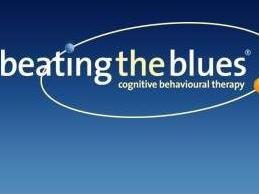NHS trialling online computer 'therapists'
Now Gareth, tell me about your mother…

An innovative new course of AI cognitive behavioural therapy is being trialled by Britain's National Health Service in an attempt to offer widespread and cost-effective therapy to British patients.
Patients get eight 50-minute sessions of therapy in the NHS's "Beating the Blues" programme, which takes place with five other 'co-sufferers' going through the process alongside you, voiced by actors.
The Guardian's Tim Lott took the eight-week course and notes that he "was introduced by a honey-voiced computer to five other "co-sufferers" - Andrew, Elaine, Jean, Bob and Heather - who were going to share my journey."
While Lott was impressed with the quality of the actors involved in the scheme, he was critical of their characters, which "all seemed a bit feeble…I unkindly branded them as - to use a non-clinical term - "losers"…They couldn't get a grip on their lives, they blamed themselves for everything, they couldn't take on goals, and they thought they were failures."
Fear of failure
Lott bravely admits to having suffered from depression himself at times throughout his life, though not from lack of self-esteem or self-confidence, as he notes, "which I don't suffer from, even when depressed (my specialities are guilt and fear, specifically fear of madness)."
He details each of his eight computer therapy sessions in depth in his detailed and fascinating Guardian report and, while he expresses some reservations about the process, on the whole it was "not as useless as I had imagined it would be."
Get daily insight, inspiration and deals in your inbox
Sign up for breaking news, reviews, opinion, top tech deals, and more.
"It is no substitute for a real face-to-face session with a counsellor, but in the absence of the necessary resources - and with some 10 million people reporting mental health problems - Beating the Blues is not an entirely worthless stab at countering an intractable problem."
For more, check out the online NHS Wellness Shop.
Via The Guardian
